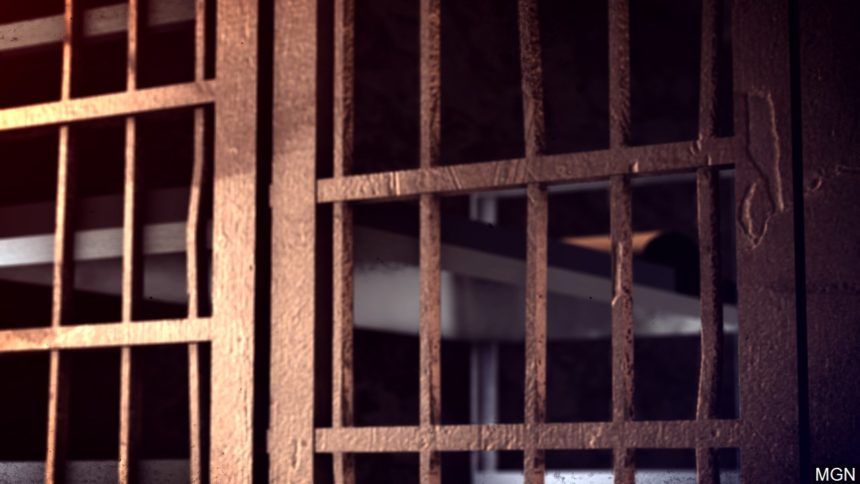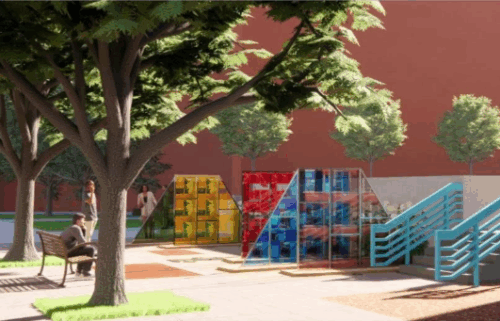Criminal justice reform propositions on the 2020 ballot
(KION) Three criminal justice reform propositions will be put in the hands of California voters on the 2020 ballot, including plans that would restore voting rights to parolees, authorize felony sentences for certain misdemeanors and change the money bail system.
Currently, people who have committed a felony and are on parole can't
vote. If approved, Proposition 17 would amend the Constitution to restore that right.
Parole is a supervised period after inmates complete their prison sentence
and are released. It typically lasts a few years but could be longer in some situations.
"Parole is not a punishment, it's actually a reintegration period," Yes on Prop 17 Campaign Manager Shay Franco-Clausen said. "We're asking them to get a driver's license, to get a job, to pay taxes, to take care of their families, but we still want to disenfranchise them?"
Supporters with Yes on Prop 17 estimate this could impact nearly 50,000
Californians who have returned home from prison.
This is something Watsonville local Bernard Gomez can relate to. He was formerly incarcerated and recently got off of parole.
"I haven't even been able to register in years. For me, it's just another
form of reintegrating into the community," Gomez said. "That's why I believe prop 17 is imperative to bring back a sense of humanity and belonging to us that are so often outcast, criminalized, marginalized."
The state legislature voted to put the proposition on the ballot.
Much of the opposition is coming from Republican lawmakers, like State
Senator Jim Neilsen, who said part of their sentence is to complete the
parole period.
Those opposed believe voting is a privilege and argue parolees shouldn't
be trusted until they've completed their full sentence.
On the ballot, a yes vote would restores voting rights upon completion of
prison term. A no vote, would keep the system the way it is.
When you open your ballot, you'll also see Prop 20, which would
authorize felony sentences for certain offenses that are currently
considered to be misdemeanors. It would restrict parole for certain
offenses currently considered to be non-violent.
Supporters of Prop 20 argue that crimes like, sex trafficking of children
and assault with a deadly weapon among others should be considered violent crimes.
"The polling data shows that the vast majority of Californians think that
felony domestic violence or rape of all sorts should be considered
violence," Yes on 20 Executive Director Mike Ziegler said.
Supporters are trying to prevent people who have been convicted of crimes, like rape or assault, from getting an early release.
"The crimes that we're talking about are centered around victims," Ziegler said.
If approved, the prop would also add a felony for serial theft when a
person is caught stealing a value of $250 for the third time, and it would
reinstate DNA collection for people convicted of theft and drug crimes.
Those opposed argue that approval of this proposition will roll back
progress with criminal justice reform and waste taxpayer dollars on
prisons.
They're also concerned types of petty theft could be charged as serious
felonies and lead to more teenagers and people of color being locked up
for low-level, non-violent crimes.
For Prop 20, a yes vote would approve these changes to the system and a no
vote would keep things as they are.
KION reached out to Senator Nielsen's office regarding Prop 17 and the No on 20 campaign multiple times, but they did not respond to our request for comment.
Here's a breakdown of what you'll see on your ballot for each proposition:
PROP 17
"Restores right to vote after completion of prison term. Legislative constitutional amendment."
-Restores voting rights upon completion of prison term to persons who have been disqualified from voting while serving a prison term.
-Fiscal Impact: Annual county costs, likely in the hundreds of thousands of dollars statewide, for voter registration and ballot materials. One-time state costs, likely in the hundreds of thousands of dollars, for voter registration cards and systems.
PROP 20
"Restricts parole for certain offenses currently considered to be non-violent. Authorizes felony sentences for certain offenses currently treated only as misdemeanors. Initiative statute."
-Limits access to parole program established for non-violent offenders who have completed the full term of their primary offense by eliminating eligibility for certain offenses.
-Fiscal Impact: increase in state and local correctional, court and law enforcement costs likely in the tens of millions of dollars annually, depending on implementation.
PROP 25
"Referendum on law that replaced money bail with system based on public safety and flight risk."
-A 'yes' vote approves, and a 'no' vote rejects, law replacing money bail system based on public safety and flight risk.
-Fiscal Impact: increased costs possibly in mid hundreds of millions of dollars annually for new process for release from jail prior to trial. Decreased county jail costs, possibly in high tens of millions of dollars annually.





